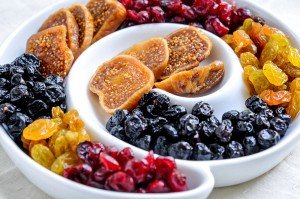10 Tips for Food Photos and an Exciting New Store
 We're so excited to announce the creation of an all new store in the Food and Health family. Now you can get appetizing and creative food photos with just the click of a button at http://www.expressionfood.com. The photos, taken by Judy Doherty, PC II are of a wide variety of culinary subjects and span a variety of moods from whimsical to haute cuisine.So, why a food photo gallery?One of our customers in long-term care and contract food service had requested appetizing healthy food photos for her facilities because the residents love having the bright colors. Adding great food photos made for a more enjoyable eating experience in the dining room, and the customer found that the patients ate better when beautiful food pictures were posted.We started going through our food photos and realized that we had quite a few to share, so we put together the store. It would be awesome if you can mention the new resources in your emails , if you would be so kind.You can print the purchased photos yourself, or we can send you prints. The photos can also be used online or in presentations.Don't feel like another regular photo? You can shop metal or wall clings too, and the photos come in different sizes!10 Tips for Food PhotosDuring the course of our time photographing food, we learned a lot. Now we want to share our knowledge with you...
We're so excited to announce the creation of an all new store in the Food and Health family. Now you can get appetizing and creative food photos with just the click of a button at http://www.expressionfood.com. The photos, taken by Judy Doherty, PC II are of a wide variety of culinary subjects and span a variety of moods from whimsical to haute cuisine.So, why a food photo gallery?One of our customers in long-term care and contract food service had requested appetizing healthy food photos for her facilities because the residents love having the bright colors. Adding great food photos made for a more enjoyable eating experience in the dining room, and the customer found that the patients ate better when beautiful food pictures were posted.We started going through our food photos and realized that we had quite a few to share, so we put together the store. It would be awesome if you can mention the new resources in your emails , if you would be so kind.You can print the purchased photos yourself, or we can send you prints. The photos can also be used online or in presentations.Don't feel like another regular photo? You can shop metal or wall clings too, and the photos come in different sizes!10 Tips for Food PhotosDuring the course of our time photographing food, we learned a lot. Now we want to share our knowledge with you...
- The food should look appetizing and be recognizable.• The food should be recognizable to the average person.• Think of someone who has simple food tastes. Would they know what this is?• It should look appealing and appetizing.• The food should appear natural, fresh, and edible.• A little spray of salad dressing can go a long way to add shine to veggies. But don’t overdo it.• Keep air around many ingredients. A salad that has a feeling of layers will always look fantastic as opposed to one that looks flat.
- It is all about the light on your food.• Filtered natural light is the first choice for food because it makes the colors appear more natural. This can be found right by your window or outdoors under a canvas covered patio.• Natural daylight fluorescent is a good second choice because it is relatively inexpensive and has a natural hue. Make sure you set your camera for fluorescent or you can adjust in your photo editing software.• Tungsten or strobes are also a good choice. They are expensive but the more traditional route for a studio that does a lot of work night and day.• Do not mix colors. Light is really made up of many colors and it can be measured on a scale of cool to warm. Cooler light has a more blue tone and warm light has a more yellow tone. If you mix outdoor light with indoor light you will have a photo that is distorted and hard to edit.
- Every corner of the food photo matters.• You will always have a better photo if your camera is on a tripod. This allows you to make sure your lighting is even and that the exposure is correct.• A tripod also allows you to make sure the picture is composed well. Is there an electrical cord or dirt in one of the corners? Too much light on one side?• Since food has to appear very appetizing, it is important to make sure everything is very clean.• Always scan the photo from a whole photo perspective.• Make sure there are no drips of food or splatters on the plate. Change plates every time you have a messy rim.
- Avoid too much contrast and dark shadows around and on food.• Use a reflector or white poster board to reflect a little more light into a dark corner.• Use filtered light to avoid too much contrast or harsh lighting conditions that cause noise.• Dark shadows and harsh light detract from the food.
- White always makes the food stand out and be the star of the photo.• White plates or clear glass plates always make the food stand out.• You can never go wrong with white plates and white backgrounds.• If you choose to use colors, a monochrome scene is always better than one that is too busy. Several tones and hues of one color like blue or gold or orange are better than a photo that has too many colors.
For the rest of the tips, please visit http://www.expressionfood.com.
